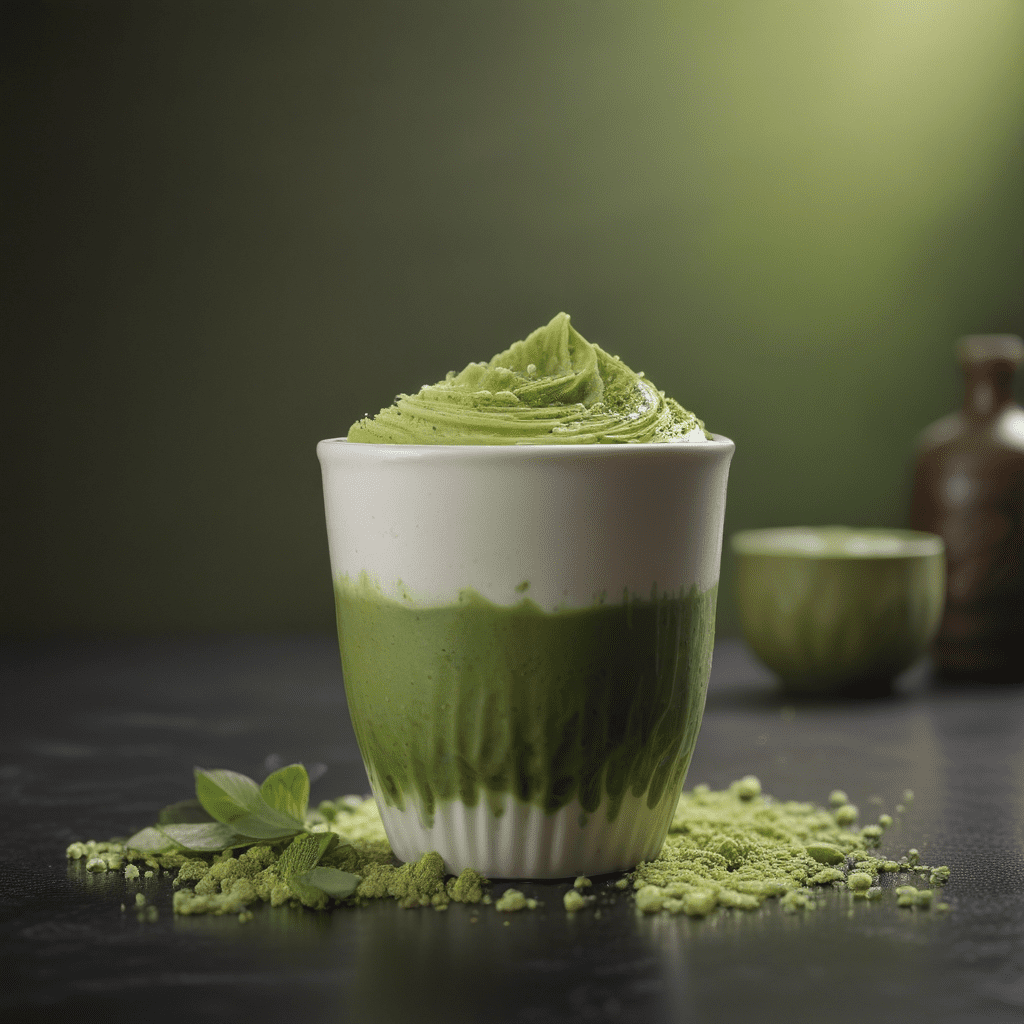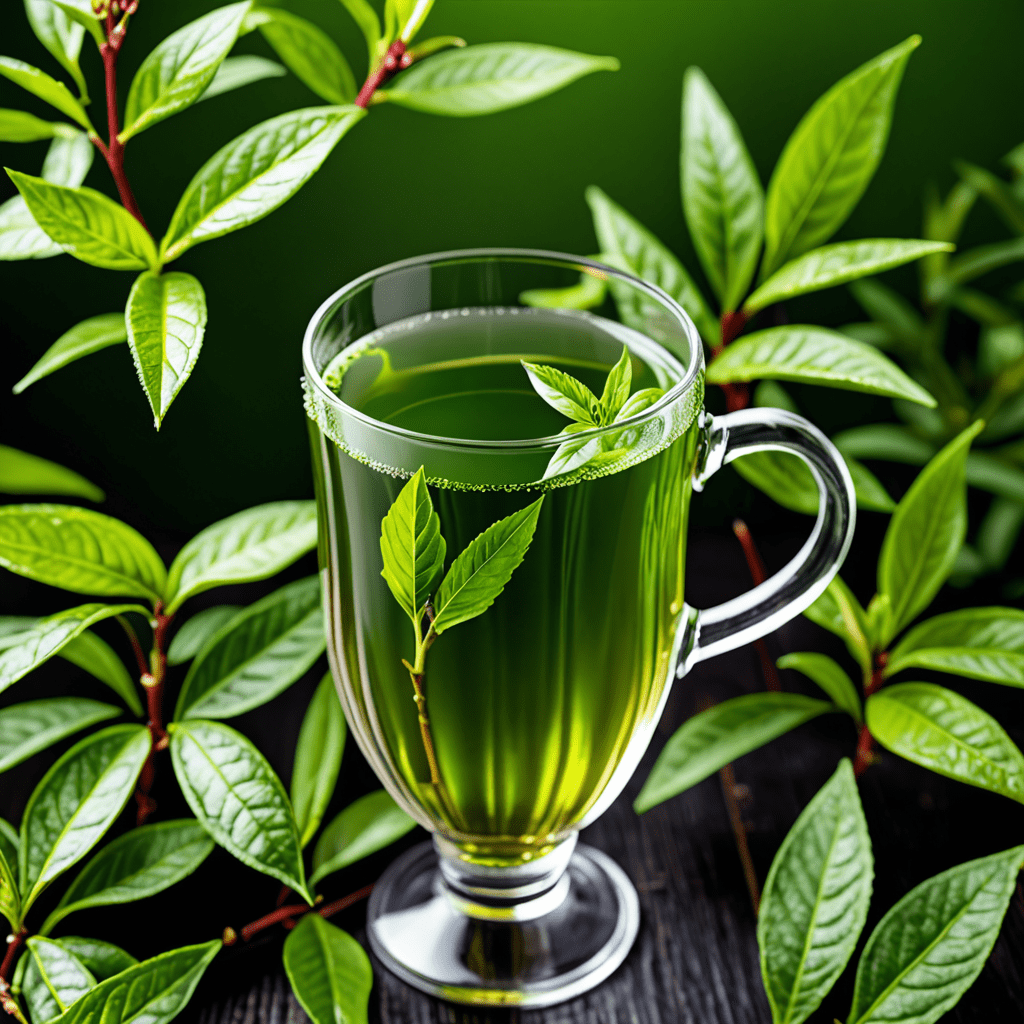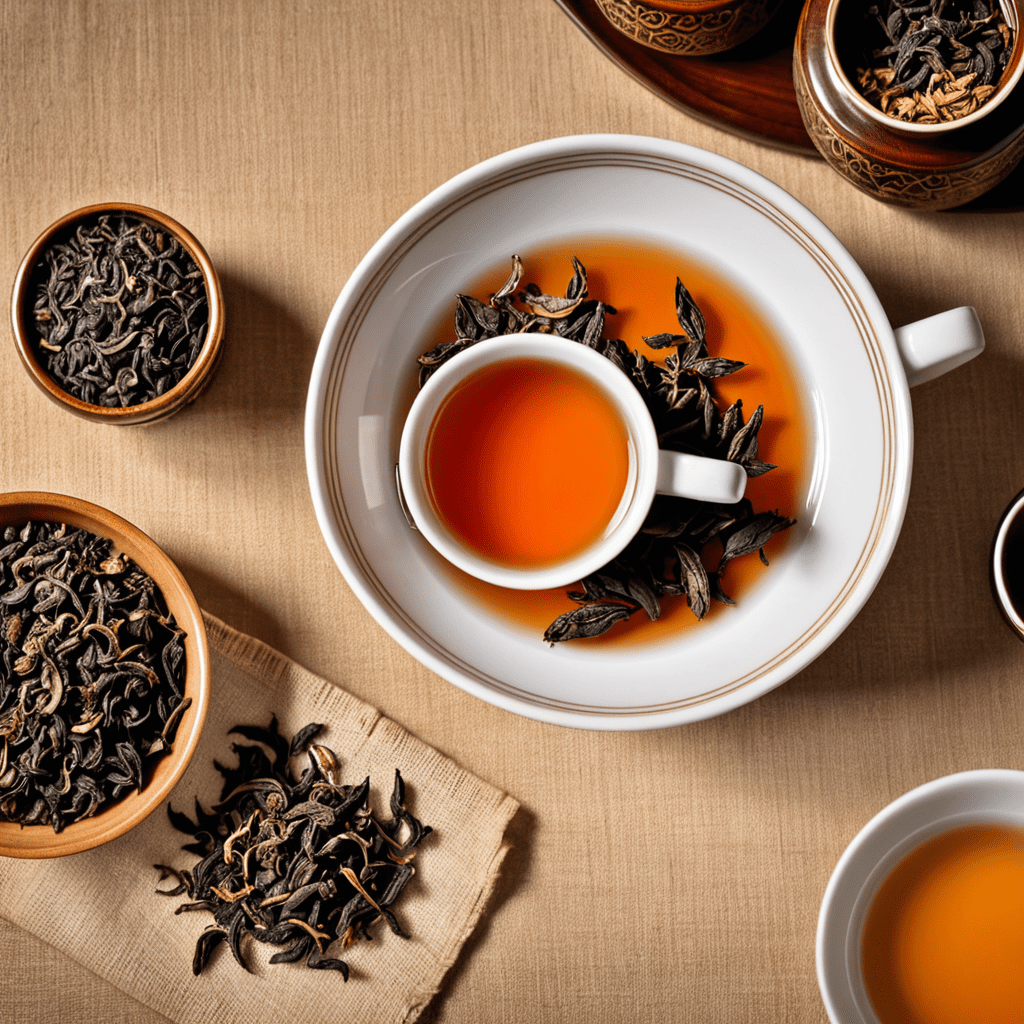
Introduction: Matcha and Its Significance
Matcha, a finely ground green tea powder, has gained immense popularity as a natural health supplement due to its abundance of health-promoting compounds. Cultivated in Japan for centuries, matcha is renowned for its vibrant green hue and distinctive umami flavor. It is crafted from the嫩叶or young leaves of the Camellia sinensis plant, which are shaded for several weeks before harvesting to enhance chlorophyll and amino acid content. The leaves are then carefully steamed, dried, and ground into the delicate powder that is matcha.
Theanine and Its Role in Mental Clarity
Theanine, an amino acid found exclusively in tea, plays a crucial role in promoting mental clarity. It is known to promote relaxation without causing drowsiness, making it an ideal substance for enhancing focus and concentration. Studies have shown that theanine modulates brain activity, particularly in the alpha brain wave frequency range, which is associated with relaxation and alertness. By increasing alpha waves, theanine can help improve cognitive function, reduce stress, and enhance overall well-being.
Antioxidants and Their Impact on Cognitive Function
Matcha is a rich source of powerful antioxidants, including catechins and polyphenols. These compounds have been linked to numerous health benefits, including the protection of cognitive function. Antioxidants help neutralize free radicals, unstable molecules that can damage cells and contribute to cognitive decline. By scavenging free radicals, antioxidants can help maintain healthy brain function and reduce the risk of age-related cognitive impairment.
Caffeine's Contribution to Focus and Concentration
Caffeine, a stimulant found in matcha, is known for its ability to enhance alertness, focus, and concentration. It acts by blocking adenosine receptors in the brain, which leads to increased levels of neurotransmitters involved in attention and memory. While excessive caffeine consumption can lead to negative effects such as anxiety and insomnia, moderate amounts of caffeine have been shown to improve cognitive performance in healthy individuals.
L-Theanine and Caffeine: A Synergistic Effect
The combination of L-theanine and caffeine in matcha creates a unique synergy that enhances mental clarity and focus. Theanine counteracts the potential negative effects of caffeine, such as anxiety and jitters, while simultaneously prolonging its stimulating effects. This combination promotes a state of relaxed alertness, allowing individuals to maintain concentration and focus for extended periods without experiencing the typical caffeine crash.
Matcha’s Amino Acid Profile: Enhancing Brain Function
Matcha contains a complex array of amino acids, including L-theanine, glutamate, and glutamine. Glutamate is a neurotransmitter involved in memory and learning, while glutamine is its precursor. By providing a rich source of these amino acids, matcha can support optimal brain function, enhance memory, and improve cognitive performance.
Practical Benefits of Matcha Consumption
Regular consumption of matcha has been associated with several practical benefits for mental clarity. Studies have shown that matcha can:
- Improve attention and focus
- Enhance memory and learning ability
- Reduce mental fatigue and burnout
- Promote a sense of calm and relaxation
- Boost mood and reduce anxiety
Scientific Studies Supporting Matcha’s Mental Benefits
Numerous scientific studies have investigated the effects of matcha on mental clarity and cognitive function. One study found that participants who consumed matcha experienced significant improvements in attention, working memory, and reaction time. Another study demonstrated that matcha consumption reduced mental fatigue and improved mood in individuals performing demanding cognitive tasks.
Incorporating Matcha into Your Diet
Matcha can be easily incorporated into your daily routine to reap its mental clarity benefits. It can be enjoyed as a traditional tea, whisked with hot water and sipped slowly. Matcha can also be added to smoothies, lattes, or baked goods. The recommended daily intake of matcha is around 2-4 teaspoons (2-4 grams).
Conclusion: Matcha as a Natural Cognitive Enhancer
Matcha, with its unique combination of L-theanine, caffeine, antioxidants, and amino acids, emerges as a potent natural cognitive enhancer. Its consumption has been linked to improved focus, concentration, memory, and mood, making it a valuable addition to your health regimen. By incorporating matcha into your daily routine, you can unlock its potential to enhance your mental clarity and support optimal brain function.
FAQs
Q: How much matcha should I consume daily?
A: The recommended daily intake of matcha is around 2-4 teaspoons (2-4 grams).
Q: Can matcha consumption cause side effects?
A: Matcha is generally safe for most people. However, excessive consumption may lead to caffeine-related side effects such as anxiety or insomnia.
Q: Is matcha suitable for pregnant or breastfeeding women?
A: Due to its caffeine content, matcha should be consumed in moderation during pregnancy and breastfeeding. Consult a healthcare professional for personalized advice.
Q: Can I take matcha supplements instead of drinking matcha tea?
A: Matcha supplements may provide some benefits, but whole-leaf matcha tea is generally preferred as it contains the full spectrum of nutrients and compounds found in the tea leaves.


